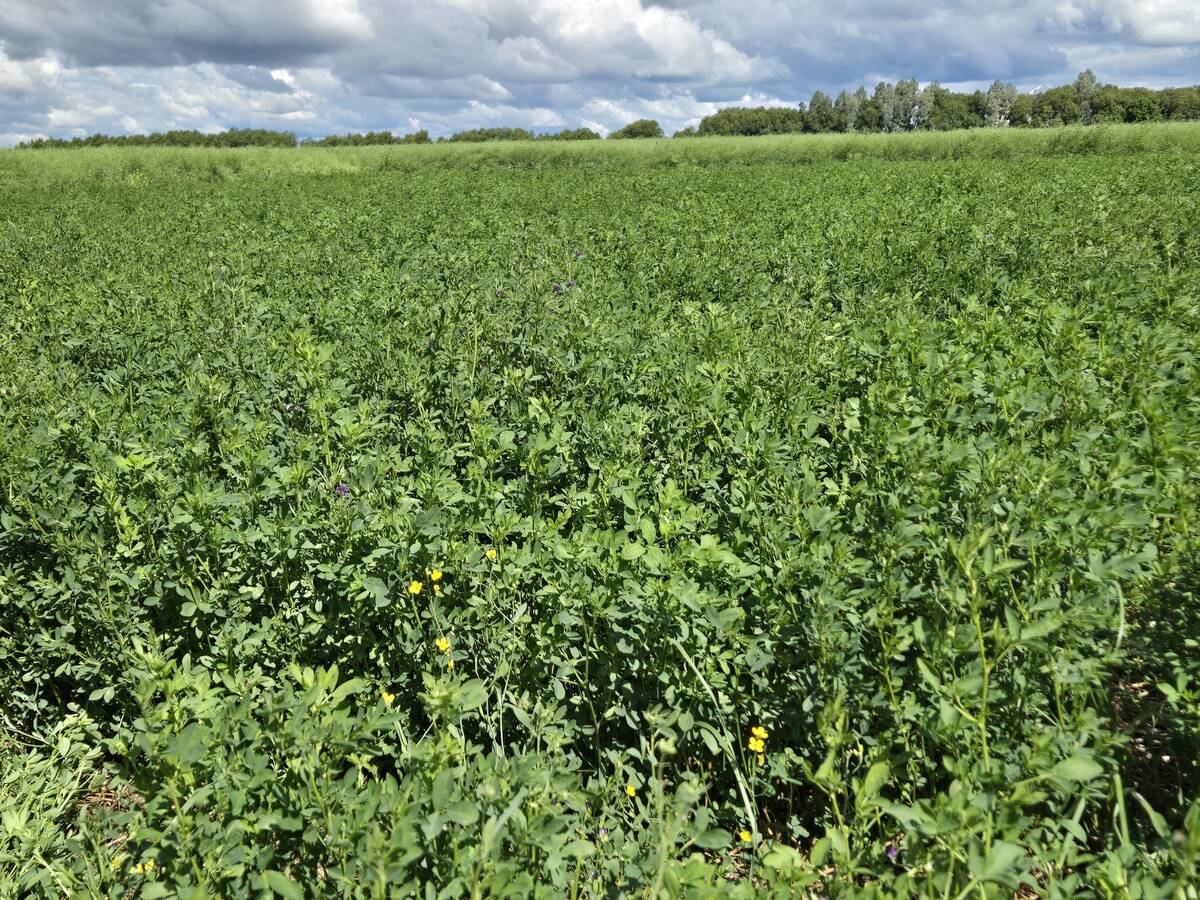The first of the canola seed treatments expected to replace lindane-based products has been given regulatory approval in Canada.
Gaucho 480 FL, from Gustafson, is a new systemic insecticide seed protectant for use on canola and mustard from germination until the plant is established.
It will keep the same fungicides that were found in Vitavax rs flowable and it added metalaxyl, found in Apron, for pythium control.
For control of flea beetles, the product contains imidacloprid.
“It is one of the first in that new class of chemicals with lower dose compounds,” said Tim Moyes, with Gustafson’s marketing division.
Read Also

Manitoba Parkland research station grapples with dry year
Drought conditions in northwestern Manitoba have forced researchers at the Parkland Crop Diversification Foundation to terminate some projects and reseed others.
Joanne Buth, with the Canola Council of Canada, said the introduction of new seed treatments such as Gaucho is part of the Canadian industry’s voluntary withdrawal from lindane.
The Food Quality Protection Act of 1996 allows the United States to block imports of foods with residues of chemicals not registered in the U.S. or which do not have a regulated tolerance level. Lindane does not have a tolerance level in the U.S.
“We would expect there could be some residue in the seed and that could jeopardize the $500 million export industry to the U.S.,” she said.
The canola council is working with chemical companies to review other products that might encounter the same problems.
Manufacturers are expected to formally agree to stop producing lindane products on Dec. 31. Seed treated with lindane will continue to be available until July 1, 2001.
“So there will be still two use seasons left, allowing the transition from lindane products to products like Gaucho.”
She noted other companies also have products in the regulatory pipeline. Novartis is advancing Helix, Zeneca Premier Z and Rhone Poulenc Adjust.
“They are what the U.S. is calling ‘reduced risk,’ ” Buth said.
In Gaucho, imidacloprid belongs to a new class of compounds that offer systemic activity at much lower application rates than earlier products.
Gustafson says Gaucho doesn’t damage soil microorganisms and earthworms and it is safe to handle.
“The system combines conditioners and polymers to present a very eye-appealing seed treatment as well as improved seed flow and reduced dust to make a more user-friendly product,” Moyes said.
OK in U.S.
The product has been available in the U.S. for some time and dominates its market segment.
In the U.S., where seed treatments have not been a standard part of canola production as they have in Canada, it convinced many growers to move away from granular insecticides, Moyes said.
In trials in Canada done by Gustafson and the canola council, the product worked as well as existing lindane treatments, and in some cases did a better job.
“The lindane products had a bit of a repellency to them,” Moyes said.
“The flea beetles sort of stayed away. With this new group of insecticides, the insecticide gets picked up by the root system, and just like the fungicide, is distributed throughout the plant.
“The flea beetle lands on the plant, takes a bit and then dies.”
There can be minimal scarring of the plant, but no economic loss.
The cost of the product has not been set yet.
“Its price will be set to match the degree of control it is providing. The final cost is being worked out, realizing things are tough right now in agriculture.”
















